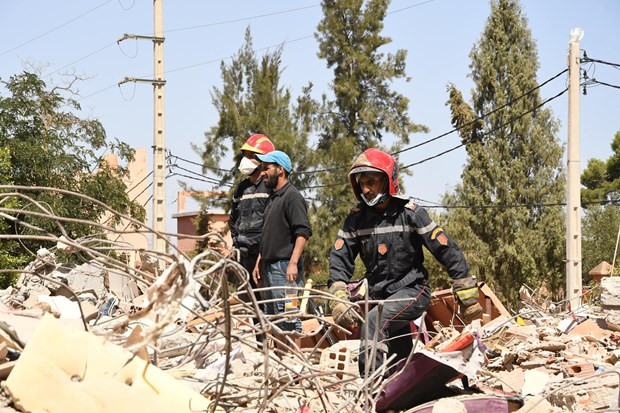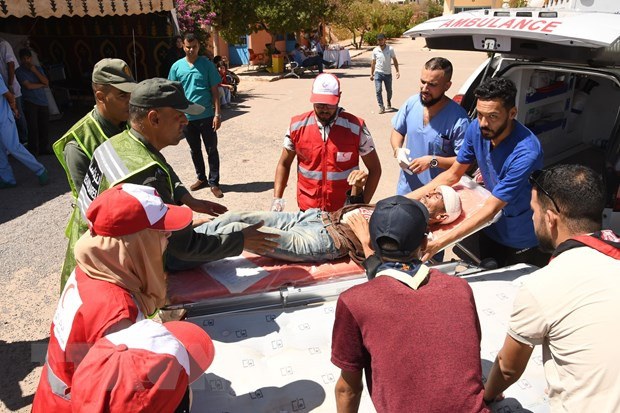Moroccan rescue forces and foreign rescue teams are racing against time to search for survivors under the rubble after a devastating 6.8-magnitude earthquake struck on the evening of September 8.

On September 11, the third day since the devastating earthquake in Morocco's Atlas Mountains, authorities confirmed that nearly 2,500 people were killed and about 2,500 others were injured.
Currently, local rescue forces and foreign rescue teams are racing against time to search for survivors under the rubble.
In the disaster-ravaged community of Talat Nyacoub, 12 ambulances, dozens of military and police vehicles were deployed along with about 100 Moroccan rescue workers searching for signs of life under collapsed houses.
Nearby, a Spanish rescue team of 30 firefighters, a doctor, a nurse and two technicians was working with local forces to prepare for the excavation.
About 70km to the north, another Spanish rescue team from the Military Emergency Unit (UME) set up camp on the evening of September 10 on the edge of Amizmiz village to prepare for search and rescue operations.
The rescue team used four rescue dogs and a miniature camera to search for the victim.
Albert Vasquez, a member of UME, said "it is very unlikely that anyone will be found alive after 3 days, but there is still hope," similar to how UME found someone alive 7 days after the earthquake tragedy in Türkiye in February.
Britain said it was sending a 60-strong search and rescue team to Morocco, along with a medical assessment team, four rescue dogs and specialist equipment.
On the same day, Caroline Holt, head of disaster, climate and crisis issues at the International Federation of Red Cross and Red Crescent Societies, said the situation in remote and rugged areas posed great challenges to search and rescue efforts.
The official said the priority now is to get heavy machinery to those areas.

A magnitude 6.8 earthquake struck on the evening of September 8, flattening villages in the hills of the Atlas Mountains.
Most houses are built of mud bricks and wood or bricks made of cinder and cement, which have poor earthquake resistance.
According to Moroccan media, more than 18,000 households were affected by this natural disaster.
The Moroccan government has declared three days of national mourning starting September 10. On the same day, the government also asked the UK, Qatar, the United Arab Emirates (UAE) and Spain to send teams to assist in search and rescue operations.